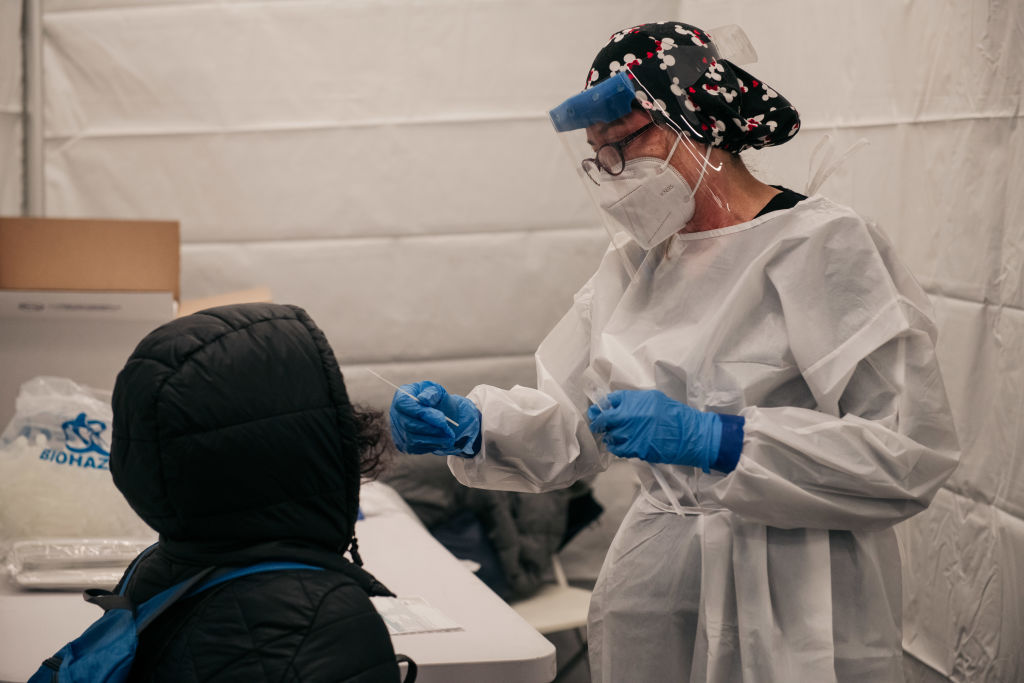Vaccines Help Prevent Serious Infections, Even in Immunosuppressed People, Study Finds
Researchers reported Tuesday that COVID-19 vaccines help prevent serious infections even in immunosuppressed people, such as organ transplant recipients and patients with rheumatoid arthritis.
However, these patients are at higher risk for infections than other vaccinated people and should take extra precautions, the researchers reported.
Dr. Jing Sun, an epidemiologist at the Johns Hopkins University Bloomberg School of Public Health, and colleagues studied the records of 660,000 people who received at least one dose of the coronavirus vaccine as of Sept. 16.
“Compared to partial vaccination, full vaccination was associated with a 28% reduction in the risk of virus infection,” they wrote in a report published in the Journal of the American Medical Association’s JAMA Internal Medicine.
“Despite full vaccination, people with immune dysfunction had a substantially higher risk of COVID-19 infection than those without the condition,” they added.
“Overall, the incidence rate of COVID-19 infection was 5.0 per 1,000 person-months among fully vaccinated people, but it was higher after the delta variant became the dominant variant of SARS- CoV-2, “they noted.
Before June, the rate of virus infections was 2.2 per 1,000 people a year. Thereafter, the rate increased to 7.3, as Delta expanded.
“People with progression of infection after full vaccination were more likely to be older and female. People with HIV infection, rheumatoid arthritis, and solid organ transplantation had a higher rate of advanced infection,” they wrote.
People with other types of immunocompromised diseases did not have higher rates of advanced infections, they found.
The vaccination protected everyone, the researchers reported. However, they noted that people receiving immunosuppressive drugs for rheumatoid arthritis or due to organ transplants, as well as HIV patients, should be careful to wear masks and avoid situations where they may be exposed.
Dr. Mary Nakamura, an immunologist with the San Francisco Veterans Administration Healthcare System, and rheumatologist Dr. Alfred Kim, of the University of Washington School of Medicine in St. Louis, said the findings should encourage the immunosuppressed to be vaccinated and boosted.
“Clinical trials of the SARS-CoV-2 vaccine did not initially include individuals with conditions of immune dysfunction, which has led to some questions about the use of the available vaccines in this population,” they wrote in an accompanying comment.
“However, several recent retrospective studies have provided reassuring data on the safety of these vaccines in immunosuppressed patients, and the general consensus is that the potential benefits of vaccination substantially outweigh the risks,” they noted.
–


